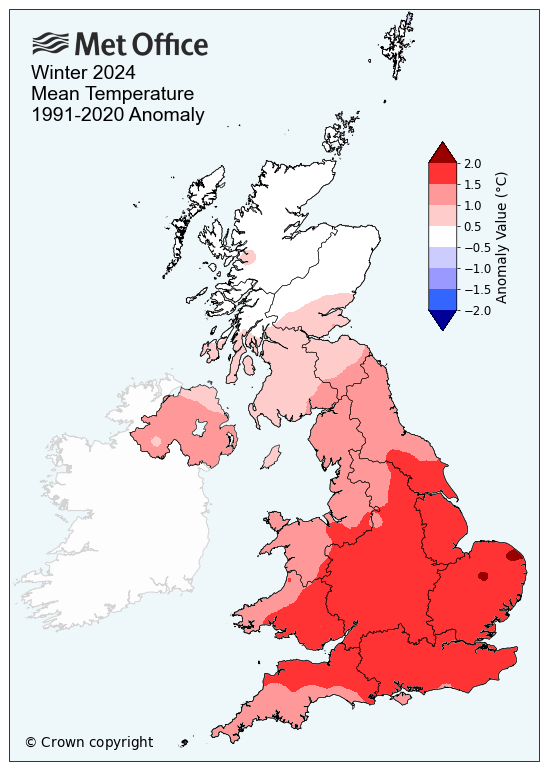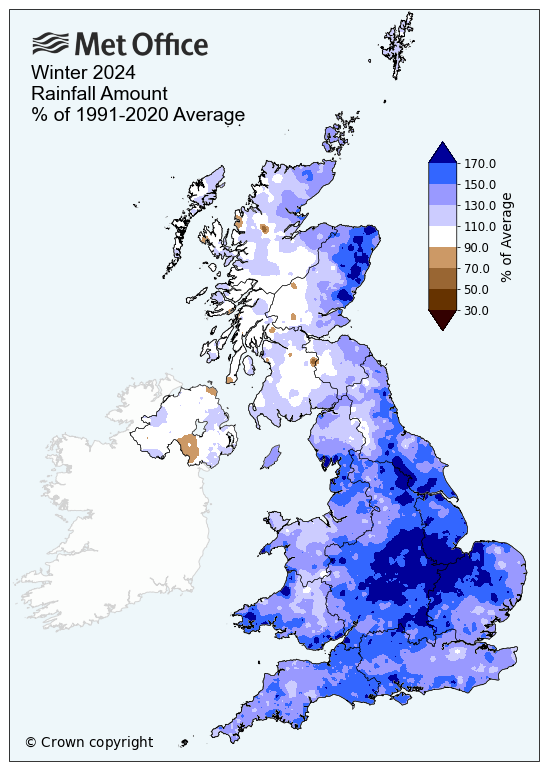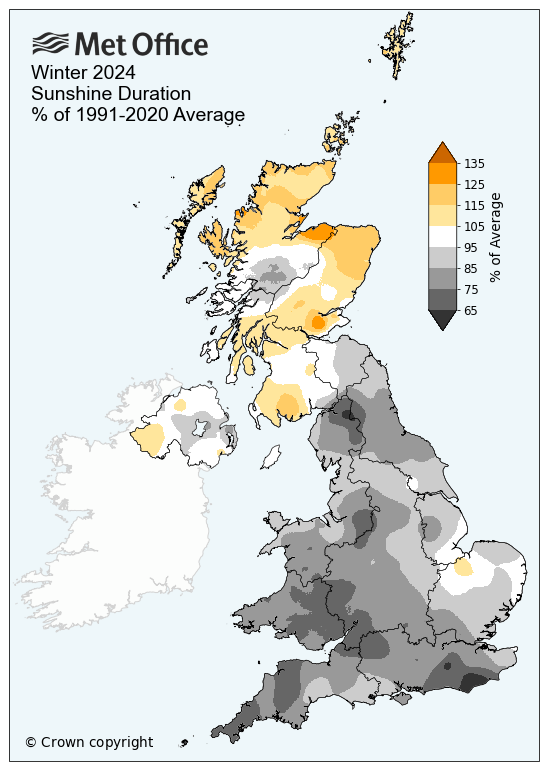As the winter of 2023/24 unfolded across the United Kingdom, it brought with it a blend of familiar patterns and surprising deviations from the norm. Drawing upon the climatological averages from 1991 to 2020, this season’s weather exhibited noticeable shifts in temperature, rainfall, and sunshine hours or lack off.
Temperatures: Despite many initial forecasts and mid term models hinting at a colder-than-average winter, much of the UK experienced milder temperatures throughout the season. While some regions encountered sporadic cold snaps and frosty mornings, overall, temperatures remained above the long-term average. This deviation from typical winter chilliness contributed to a more temperate atmosphere across the country. Scotland overall was closer to the average while the central and southern areas where broadly well above.

Rainfall: Rainfall patterns during the winter of 2023/24 diverged from the expected norms, with certain areas receiving well above-average precipitation. Particularly in central and some eastern parts, rainfall amounts surpassed typical levels, leading to localised flooding and heightened concerns about water management. Conversely, across N Ireland and western parts of Scotland here there where periods of drier conditions, highlighting the inherent variability in precipitation distribution across the nation.

Sunshine Hours: The distribution of sunshine hours during the winter months fluctuated, reflecting the dynamic nature of atmospheric conditions. While some regions enjoyed periods of clear skies and plentiful sunshine, others grappled with persistent cloud cover and reduced daylight. Overall, the seasonal average of sunshine hours remained broadly lower than historical variability for most of you, while parts of Scotland perhaps seeing above normal sunshine amounts, this underscoring the unpredictable nature of British weather.

As previously highlighted the Hunga Tonga volcano in 2022 pumped unprecedented levels of moisture into the Atmosphere but also the stratosphere as well. The stratospheric polar vortex has behaved very strangely this winter, most likely as a result of the excessive moisture and has made forecasting in the longer term almost impossible. No working model to data has been programmed to deal with such levels of moisture in the atmosphere.
Excessive water vapour in the atmosphere leads to global warming, this is fact and will be a contributor to further global records being broken this year but perhaps the next several years as the fall out continues. This just goes to show though, we all could have had electric vehicles over the past decade, all countries close to net zero for the past decade and one event like this just blows all that away. We cant change the way the earth acts.
Yes for our own sanity we should be better emissions wise, or recycle better but aiming for net zero is not only an impossible task, its damaging for the economy but overall, its pointless. It will take just one volcanic event big or small to wipe all that away. Furthermore, I have one final word to say and in the style of the ever flamboyant Donald Trump, “China”.




